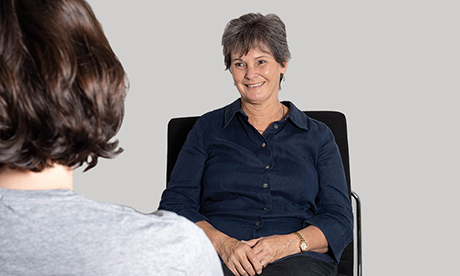With the seemingly endless stream of Australian royal commissions taking place, about to take place or called for, the ethical and cultural leadership practices of both government and non-government organisations are well and truly in the spotlight of public scrutiny.
And rightly so.
People make decisions to behave unethically and destructively, but they do so drawing on cultures and systems that are already themselves dehumanising.
The damage done not just to individuals but also to whole communities is writ large; the disregard for basic human dignity and the perpetuation of injustice has been incredibly costly, both psychologically and financially.
The Catholic Church has not and should not be spared.
Among the numerous recommendations handed down in the final report by the Australian Royal Commission into Institutional Responses to Child Sexual Abuse in 2017 was the requirement for all religious and pastoral ministry workers to undertake professional supervision.
The goal is to create safe environments
As a psychologist practitioner and educator with many years working in abuse and trauma, I have come to understand the crucial importance of professional supervision as a response to the dire organizational and cultural structures that have made possible so much harm.
Professional supervisors support practitioners in caring vocations to critically reflect upon and refine their professional religious or other work practices.
The goal is to help those working with vulnerable clients and communities to create environments that are safe and responsive to their clients’ needs.
In faith-based settings, such supervision includes taking account of the spiritual dimensions of the human person and organizations.
Professional supervision of organizational leaders and practitioners is all about inspiring a greater awareness of values-based professional conduct, consistent with acknowledged current best-practice standards.
The organization, its practitioners and its clients all benefit, with greater institutional accountability, improved service, and opportunities for practitioners to further develop compassionate and ethical work practices.
Not about policing, but accompanying
When we use the word supervision, we can sometimes think it’s about policing — making sure people are doing the right thing. But this is a superficial understanding of the practice. In fact, it’s about accompaniment, having an ally to help a member of an organization enhance their professional practice. That’s never been more important institutionally than now.
Supervision is not a new practice — in health and caring roles, clinical supervision is recognised as an essential aspect of a health practitioner’s professional development. A professional gets to talk through their work-place challenges and practices with someone trained to support them to understand their values and ethical frameworks. In this way, supervision strengthens a worker’s willingness to actively support the values of their organization.
So why did the Royal Commission recommend that all people in religious and pastoral ministry in the Catholic Church — bishops, provincials, clergy, religious, and lay people — undertake mandatory professional or pastoral supervision?
Providing support for best practice
In the context of the Church, I would argue that everybody involved in Catholic ministry is in a caring role.
Pastoral work, at its core, cares for the soul, the spirit, the mind, the heart and the body.
Such holistic vision of care should distinguish a Catholic workplace from a secular one.
So a teacher at a Catholic school is responsible for inviting not just minds to grow but also hearts and spirits and souls.
A youth minister in a parish seeks to form the hearts and souls of young people who are building up their spiritual and interior life.
A social services worker in the many Catholic welfare agencies seeks to reclaim hope and humanity in devastating situations where people are trying to respond to domestic and other family violence.
All this requires support.
Such is the role of supervision: to provide support for best practice.
Supervision makes visible practices of power and influence, and guarantees a conversation about power in a discursive space.
The effect of supervision, if used consistently and authentically, is it ensures that it’s harder to misuse power — not because the supervisor seeks to control, but because supervision offers the space for a person to understand their power, to ensure they do no harm and can become informed so as to withdraw consent from situations in which they are experiencing harm.
From my experience, supervision breeds cultural safety.
All corporate organizations should adopt supervision
In the five years since the Recommendations were handed down by the Royal Commission, many dioceses and institutions have responded to Recommendation 16.25 by launching initiatives which encourage clergy and seminarians to undertake professional supervision sessions.
Australian Catholic University has developed a set of award courses to provide expert training to people who wish to become professional supervisors and register with professional organizations such as the Australasian Association of Supervision (AAOS).
All courses enable such professional registration and so attempt to respond to the dearth of suitably qualified and registered supervisors.
While the Royal Commission has recommended supervision for all religious institutions, I would encourage all corporate organiszations, especially leaders, to consider this practice as part of regular Professional Development.
Given the scarcity of appropriately trained supervisors, I encourage those with a sense of the importance of this role and its significance for occupational health and safety to undertake training.
As accompaniment practice, supervision ensures safe cultures where people’s differences are honored in an inclusive manner and where dialogue is fostered.
As a professional practice, supervisors work to support meaningful and safe workplaces of best practice, preventing such horrendous and damaging evils as bullying, abuse and violence in churches and workplaces.
- Jamie Calder is a Jesuit priest and practicing psychologist who teaches theology at Australian Catholic University. Republished from La Croix International.
News category: Analysis and Comment.




